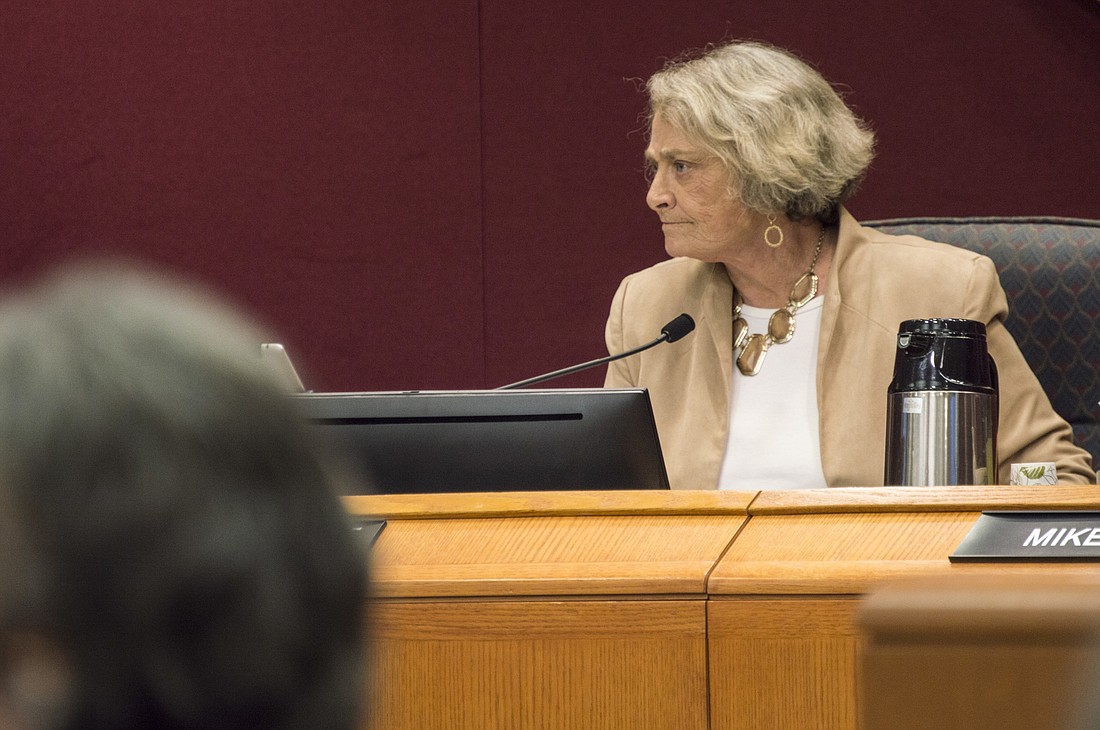- April 18, 2024
-
-
Loading

Loading

Following a state directive, county commissioners discussed changes to Sarasota County’s affordable housing mandates that require developers to include affordable housing in new developments.
Rather than mandating developers to include affordable housing, commissioners voted 3-1 to amend the county’s long-term growth plan to provide incentives for developers — such as increased density and waived fees — to work affordable housing units into their developments.
Chair Mike Moran was absent, and Commissioner Nancy Detert voted against the plan.
The change came after state lawmakers approved House Bill 7013, which mandated county governments that require affordable housing units provide incentives that offset the cost to develop the affordable housing units.
The change means that developers may choose to set aside a certain percentage of units — the current mandate is 15% in village districts — for low-income residents. However, any costs associated with those units would be offset by incentives from the county, such as density bonuses or waived fees.
Because it is a change mandated at the state level, the comprehensive plan amendment will need to be approved by the state before commissioners revisit it at a Jan. 13 hearing.
Detert, who also on Tuesday volunteered to serve on the Sarasota Consortium Affordable Housing Advisory Committee, was against the change.
Detert said the county offers incentives, and builders follow the county’s plan based on whether they need the incentives, which she said doesn’t do enough to encourage affordable housing in the county.
“Then we pretend we did something about affordable housing,” Detert said. “My goal is to have family housing, working family housing, not welfare housing, all over the place.”
County Planner Steve Kirk said the county offers developers greater density in exchange for affordable housing units, but not many large-scale developers use the program. Siesta Promenade is the largest project to take the county's offer in recent years, Kirk said.
Deputy County Attorney Joshua Moye said the county could keep its current mandate if commissioners think the code offsets the cost for the requirements. However, he said the current codes do leave room for uncertainty.
“It could lead to litigation over what is the value of our current code versus what is the value to fully offset it,” Moye said. “That could lead to significant liability exposure.”
Moye said if it was found that the offset cost of the affordable housing is more than the county is offering, the county would have to pay the difference.
Rather than opening the county up to that uncertainty, Moye advised the county to adopt the incentivized amendment.
Under the amendment, rent for residents who earn less than the area median income of $76,700 would remain unchanged for the first five years. The affordability level would be met at the time of sale for purchased properties.
Detert said that with the rent cap, there is no incentive for low-income residents to purchase a home, and she’d like to see some programs that offer down payment assistance.
“I don’t know why anybody would bother buying — you might as well just be a renter with frozen rent because you’re not going to be able to capitalize on any appreciation of the home you bought,” Detert said. “So then you’re depriving people of what Americans have historically done, which is buy a small starter home, through appreciation make some money off of it and move to their second home.”
In addition to the amendment, the county also will consider eliminating its Affordable Housing Overlay District. The current properties would remain, but no new properties would be added.